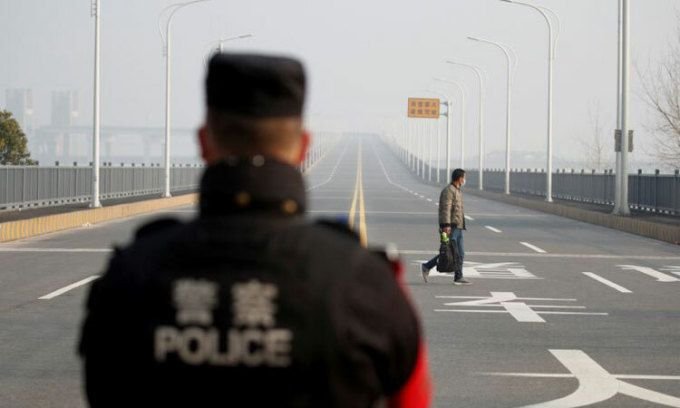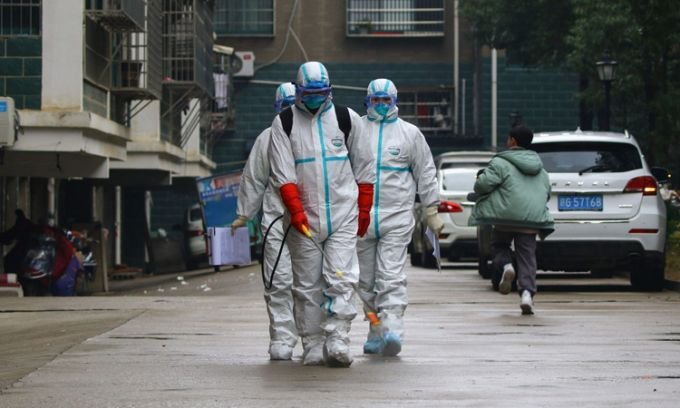
The bridge separating two worlds between the pneumonia epidemic 2
`You two won’t be able to come back,` a police officer warned Shi Zhiyu and her grandmother Ying Quanlong at the last checkpoint on their journey to cross the bridge over the Yangtze River into Hubei province, China.
Since January 24, authorities closed the busy bridge connecting Jiujiang city in Jiangxi province with the eastern region of Hubei province, as part of efforts to control the epidemic.
Jiujiang police guard the bridge connecting Hubei province, China on January 31.
For the lucky few who have proper documents and are healthy, the bridge is a rare escape from the `outbreak`.
After the new strain of corona virus (nCoV) broke out from Wuhan city, capital of Hubei province in December, many Chinese people turned their backs on their compatriots from this locality.
The Chinese government last week issued new anti-coronavirus regulations, according to which people who `intentionally` spread the disease by ignoring quarantine rules could be sentenced to death.
In Jiujiang city, about 225 km from Wuhan, residents said their lives had been turned upside down and anxiety was rife because of its proximity to the `outbreak`.
The bridge connecting the two localities was suddenly closed while Shi, who lives in Hubei, visited Ms. Ying, who was hospitalized in Jiangxi province on the other side of the river after suffering a stroke.
`We often come here to watch movies and shop, just take a 20-minute bus ride. Now it’s become a different world,` said the 15-year-old girl.

The Jiujiang Bridge spans the Yangtze River connecting Jiangxi and Hubei.
In the opposite direction from Shi’s grandmother, the salesperson surnamed Gui pulled his luggage through the checkpoint, after getting up at 8 a.m., took a long-distance taxi and then walked 90 minutes across the bridge.
`I don’t blame the blockade. The country needs to do what it has to do,` Gui said with a smile, seemingly unable to hide his relief after escaping Hubei.
However, in an alley less than 500 meters away, a shop owner named Zhang Hubin appeared afraid of people coming from neighboring provinces.
On a road in Shimendong village, on the outskirts of Jiujiang, a red government banner printed the words: `Don’t wander around if you just returned from Wuhan. It’s all over if you spread the disease.`
They are volunteers assigned by the local government to prevent potentially infected strangers from entering the village.
`The authorities went door to door to check on people returning from Hubei. They were all quarantined at home under supervision. Luckily no one was infected,` a man surnamed Hu said, adding

Employees in protective clothing disinfect a residential area in Jiujiang city, Jiangxi province, China on January 25.
Many Chinese officials urged people not to discriminate against their compatriots.
On a deserted avenue in Jiujiang city, Tian Hongfa, a 62-year-old flower arranger, said he has relied on the influx of tourists and flower suppliers from Hubei over the years to maintain his business.
`The economic growth rate has slowed down for five years, and now this epidemic has come. It will take us a long time to recover,` Tian said, adding that the fate of Jiangxi province
`I think we should sympathize with the people in Hubei. We are one family, on both sides of the river,` he said.







